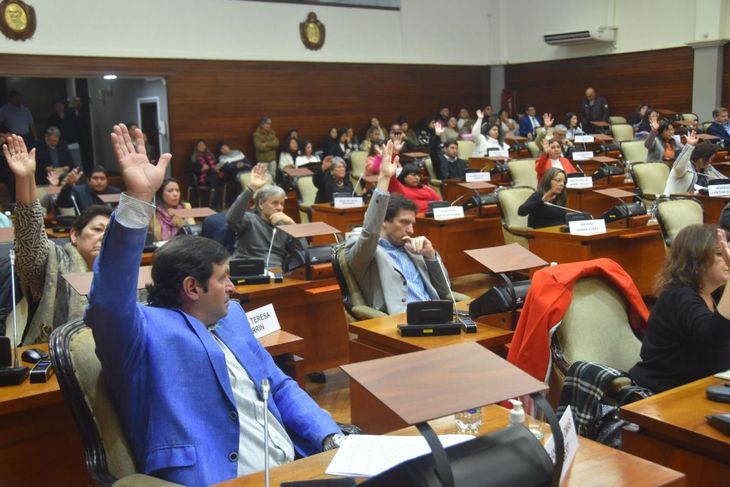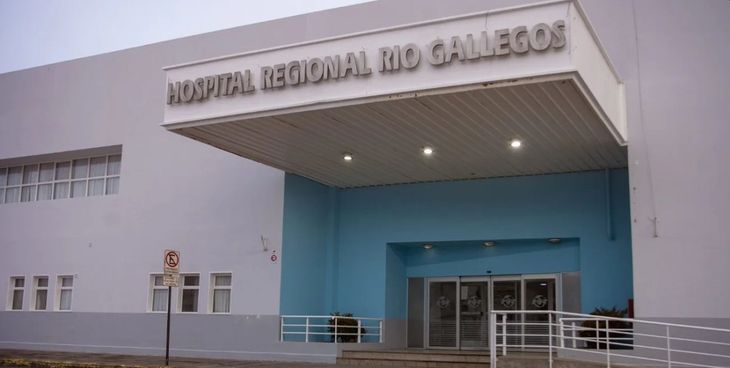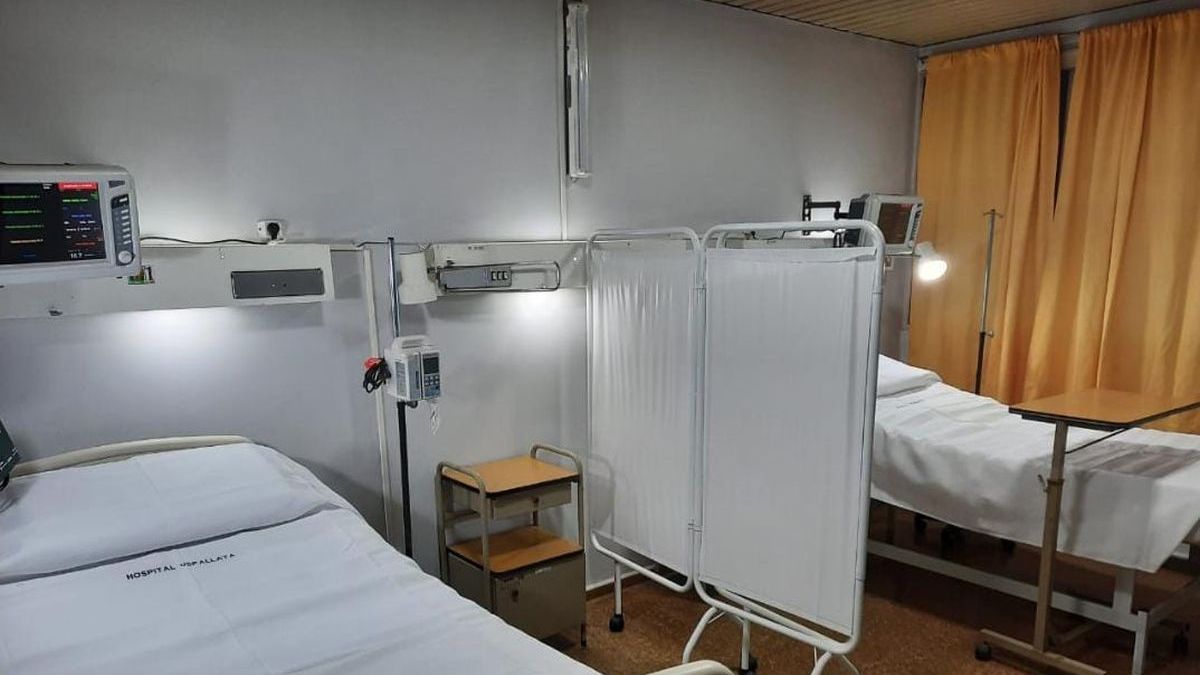The DNU contemplated that health care for foreigners in cases of urgency or emergency (whatever category they fall into) cannot be denied or restricted, since it is a humanitarian issue. The provincial State will subsequently arbitrate the necessary means to collect the expenses incurred.
At the time of its publication, the Salta management emphasized “the economic crisis that the country is going through” and the consequent “decreases in its treasury not only due to the cut in national transfers but also due to the decrease in revenue produced by the economic crisis itself.”
Federico Mangione.jpg
Federico Mangione, Minister of Health of Salta.
Likewise, it was pointed out that, because it borders three countries, Salta “regularly and constantly receives a large number of foreign people who request health care, having until now been provided with quality and free service, to the detriment of nationals who Many times they have to postpone their care due to the collapse of the system.
Last May, just over two months after its application, the local Minister of Health, Federico Mangionedrew up an assessment of the impact of the DNU. “Before we had the hallways full of patients, and today we are quite comfortable with care. Last month, from 3,300 patients treated, today we have dropped to 60 patients in Oran. “If we put the value of the consultation, which is $6,600, we would have to be earning more than 23 million pesos, just in consultations,” He stated in statements to Radio Con Vos.
At the same time, the official criticized the concept of “reciprocity”: “In Salta and Argentina we have very good public health. That’s why I don’t like when people talk about reciprocity with the neighboring country, because no Salta or Argentine goes to Bolivia to “They charge you for absolutely everything. In fact, patients have died at the hospital door because they did not want to treat them.”
Jujuy
Similar regulations apply in Jujuy. In 2019, during the management of Gerardo Moralesthe province established the Provincial Health Insurance System for Foreigners, except where reciprocity exists. In its article three, the text establishes that the legal regime established by the Law “will be mandatory for all foreigners who remain in the territory of the Province of Jujuy on a temporary basis.”
Last September, five years after Morales’ initiative and already under the governor’s management Carlos Sadirthe local Legislature finally approved the law by a large majority. However, it has not yet been implemented, so it is not applied.
Jujuy Legislature.jpg

In September, the Jujuy Legislature approved charging for medical care to non-resident foreigners.
During the debate, figures from the provincial Ministry of Health were presented, where it was noted that between 2023 and the first half of 2024 there were 77,310 outpatient care for foreigners, of which 71,517 were of Bolivian nationality. Santiago Jubert, president of the ruling Frente Cambia Jujuy Block, reported that in 2019 efforts were made to advance a reciprocity agreement with Bolivia but it failed.
“We worked hard, we were prudent in the times, we have nothing against our Bolivian brothers but we need to organize our health and give guarantees to the people of Jujuy,” held.
In this regard, the head of the Jujuy health portfolio, Gustavo Bohuidassured: “We know that when we go to Bolivia they do not attend to us if we have any mishap, so I hope that this provokes a reaction in the Bolivian government.” In July, a hospital in Villazón, Bolivia, denied admission to an Argentine girl who had suffered serious burns. This event once again brought up the issue of reciprocity, which finally resulted in the approval of the law in the Legislature.
Mendoza
Mendozafor its part, also implemented a similar regime. Since August 1, the province of Cuyo charges for medical care to “patients of foreign nationality who are in the categories of temporary and precarious residents, in accordance with the provisions of Article 24 of the Migration Law No. 25,871.”
In dialogue with Ámbito, the head of the Fund Recovery Entity for the Strengthening of the Mendoza Health System (REFORSAL), Daniela Correa, had explained that the central objective “is to recover the costs of the care provided to patients with social works, prepaid, etc. “Mendoza residents do not have to transfer public resources to prepaid companies. The idea is to recover costs for the public health system,” he pointed out.
Hospital Notti mendoza.jpg

Since August, Mendoza has also charged medical care to non-resident foreigners.
Government of Mendoza
At the same time, the official from Alfredo Cornejo’s administration pointed out that the measure “will help reduce the financial deficit of the public system, due to this extra cost that is spent on paying for inputs from foreigners. That, in a way, returns to the Mendoza system”. Another of the axes, he indicated, is reciprocity with the international system. “Many countries also charge foreigners for medical services. This also ensures fair treatment for local citizens who may need medical care abroad,” he detailed.
On the other hand, Correa warned that the Mendoza health system has “quite a lot of pressure” and recalled that in 2023, in Mendoza, “$4.8 billion in social works were recovered. Through the creation of REFORSAL, the funds are expected to triple.”
Holy Cross
Another province that followed this path was Holy Cross. In mid-April, the Patagonian administration established a differentiated tariff, consisting of an increase equivalent to 50% of that corresponding according to the practice in question for non-resident and/or temporary foreigners who do not have a hospital card, and not covered by bilateral agreements of reciprocal assistance.
“Everything that is emergency or at-risk personnel – pregnant women, children, the elderly – is not charged. It is only for personnel in transit. If they are foreigners, they have a 50% increase in the nomenclature,” They indicated to this medium when the measure became official. From the Claudio Vidal administration they argued that they had to move forward as a consequence of the national government’s defunding of the province with some programs and medications, such as oncological medications and immunosuppressants.
Hospital Río Gallegos.jpg

Santa Cruz announced in April the charging of medical care to non-resident foreigners.
“There is a situation that derives from the adjustments of the national government. These adjustments caused us a lot of disorders in the financing of public health,” they pointed out, and explained: “That contradicts you by defunding. On the one hand, with the migration of the prepaid ones, the public hospital is filled with more and more people and, in addition, the Government stops assisting you with its responsibilities,” they protested at the time.
Because of its border with Chile, Santa Cruz is a permanent transit point for people arriving from the neighboring country. Many of them, in particular, go to Argentina to buy consumer goods given the difference in prices. In addition, tourism between Punta Arenas, Río Gallegos and various border towns is continuous.
Currently, other provinces such as Entre Ríos, Neuquén, Córdoba and Corrientes have projects in the pipeline to charge foreigners for health services.
Source: Ambito
I am a 24-year-old writer and journalist who has been working in the news industry for the past two years. I write primarily about market news, so if you’re looking for insights into what’s going on in the stock market or economic indicators, you’ve come to the right place. I also dabble in writing articles on lifestyle trends and pop culture news.




